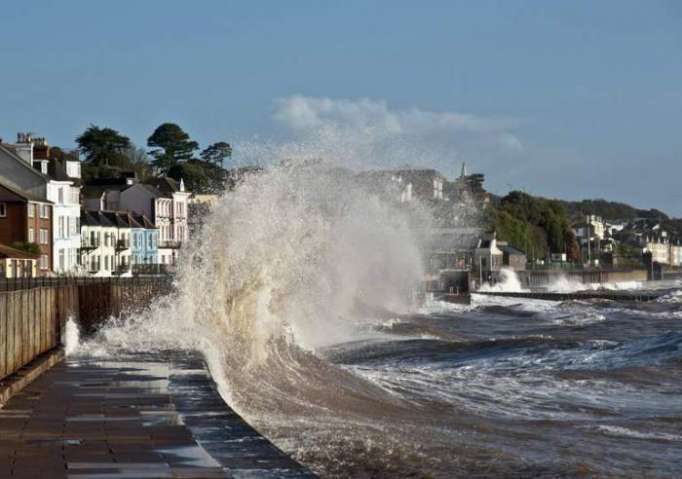The results suggest coastal development and climate change, both of which are known to be destroying the world’s coral, could have the knock on effect of subjecting people to more floods.
Reefs serve as natural breakwaters that reduce flooding by dampening waves and breaking them early.
However, their capacity to do this is severely hampered if the corals that form them are degraded, and in a study published in the journal Nature Communications scientists predicted the flooding outcomes if the top one metre of coral reef is lost.
Overall, the scientists predicted annual damages from flooding will double if these trends continue – an increase of $4bn (£3bn).
Island nations like Indonesia, Philippines and Cuba have the most to gain from reef management, with annual expected flood savings exceeding $400m each.
“We built the best global coastal flooding model and then we added reefs to estimate flood risk overall and the benefits provided by these habitats,” said Professor Íñigo Losada, from the University of Cantabria.
“This represents the first global application of a coastal protection model that probabilistically estimates risk and the benefits of coastal ecosystems.”
If coupled with sea level rise, the scientists found that flooding in the absence of coral would likely quadruple.
“Unfortunately, we are already losing the height and complexity of shallow reefs around the world, so we are likely already seeing increases in flood damages along many tropical coastlines," said Dr Michael Beck, lead marine scientist at The Nature Conservancy.
“Our national economies are normally only valued by how much we take from nature.
“For the first time, we can now value what every national economy gains in flood savings by conserving its coral reefs every year.”
Extent of hurricane damage to coral reefs revealed by scientists
Coral bleaching events caused by global warming have led to massive “die-offs” in recent years on the Great Barrier Reef.
Globally, the threat posed by climate change is compounded by growing human threats such as coastal development, sand and coral mining, and destructive fishing practices.
The study suggests that tropical storms that have devastated coastlines in recent years such as Hurricanes Irma and Maria and Typhoon Haiyan would have been far worse in the absence of coral reefs acting as buffers.
“Coral reefs are living ecosystems that can recover if they are well managed, and this study identifies why and where we should find the needed support for restoration and management,” said Dr Beck.
“It is our hope that this science will lead to action and greater stewardship of reefs around the world.”
The researchers said their findings should offer a financial incentive to world governments to invest in coral reef conservation in order to prevent future storm damage.
“These estimates make a compelling case for present-day spending on reef management without assuming that reefs will disappear altogether under a business as usual scenario - nor do they rely on just rare, large storms,” said Dr Borja Reguero, a researcher at the University of California, Santa Cruz.
“Better valuations of the benefits provided by coastal habitats like coral reefs, provided in terms familiar to decision makers, can help decision makers recognise the value and ensure the protection of these critical habitats and their services.”
The Independent
More about: flood
















































